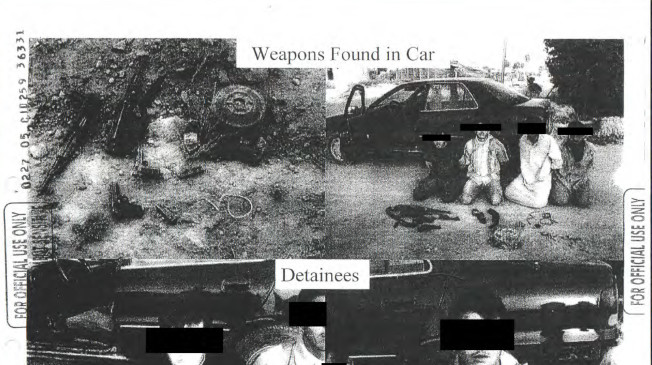Pentagon releases photos of alleged detainee abuse
The Pentagon has today released nearly 200 photos of abuse carried out against military detainees in Iraq and Afghanistan during us military involvement there. According to redacted files obtained by the American Civil Liberties Union through the Freedom of Information Act and presented on its website, The Torture Database, the photos show a detainee from Abu Ghraib Prison in Iraq who claimed he was hit in the head with a rifle and kicked in the shin while detained at Al-Adhameyah Palace.
The ACLU, which filed its original FOIA request in 2003, hailed the release of the photos, but said the decision to hold back the remaining 1,800 images could “mislead the public about the true scope of what happened”.
In a statement, a Defense Department spokesman said, “These photos come from independent criminal investigations into allegations of misconduct by US personnel”.
In the substantiated cases, 65 service members were disciplined in some way ranging from letters of reprimand to life imprisonment.
President Barack Obama meant to release all of the images in 2009, but changed his mind after objections from the Iraqi government and the top United States military commander in the country.
Still, the ACLU vowed to continue its fight for the release of all the photographs.
“The disclosure of these photos is long overdue, but more important than the disclosure is the fact that hundreds of photographs are still being withheld”, Jameel Jaffer, ACLU deputy legal director, said in a news release. The pictures, taken more than a decade ago during the Bush administration, consist largely of close-up views of scrapes and bruises on detainees’ bodies.
Congress then created an exemption to the Freedom of Information Act that allowed the Secretary of Defense to certify that releasing the photos would put American lives at risk.
‘The still-secret pictures are the best evidence of the serious abuses that took place in military detention centers.
Last November, Secretary of Defense Ash Carter refused to disclose the bulk of the 2,100 pictures – but he also said the Pentagon could decertify the 198 photographs released on Friday because they would not harm national security. “What the photos that the government has suppressed would show is that abuse was so widespread that it could only have resulted from policy or a climate calculated to foster abuse”, Alex Abdo, an ACLU staff attorney said in the same statement Friday.
Friday’s release does not include any contextual information about the photos, such as where the detainees were held and under what circumstances, or the specific abuses that were being investigated.
“It forces you to ask what might be in the other photos that are still being withheld”, he said. Multiple rulings have suggested that the federal government may have to release the photos, but the federal government has appealed at every turn.
U.S. District Judge Alvin K. Hellerstein of the Southern District of NY in March 2014 ordered the Pentagon to release the photos.








